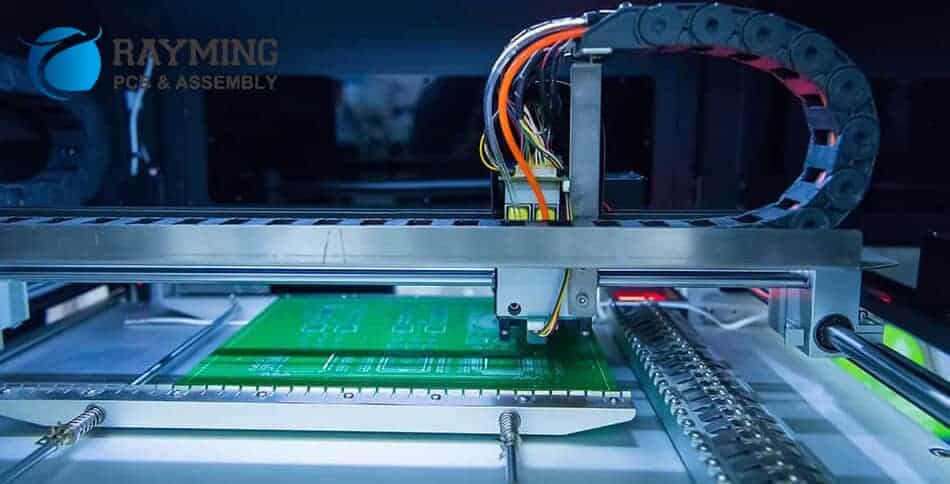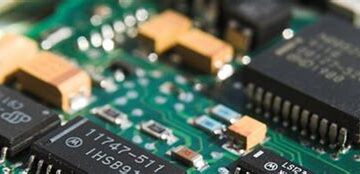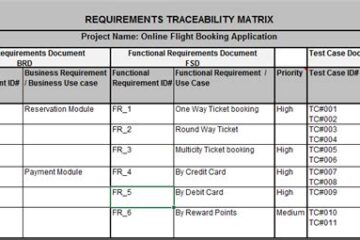Printed circuit boards (PCBs) are essential components in almost all modern electronic devices. As products become more advanced, PCB assembly has become an incredibly complex process requiring sophisticated machinery, skilled technicians, and robust quality control procedures. This makes choosing the right PCB assembly company vitally important for bringing your product idea to life.
This guide will provide key factors to consider when selecting a PCB assembly partner and tips for finding a manufacturer that fits your specific needs and budget.
What Does a PCB Assembly Company Do?
A PCB assembly company is responsible for sourcing components, soldering them onto printed circuit boards, and testing the finished assemblies. Here are some of their main responsibilities:
- Sourcing Components: Assembly companies have established supply chains and leverage their buying power to obtain all necessary electronic components specified in a bill of materials (BOM). This includes chips, resistors, capacitors, connectors etc.
- Soldering Components: The components are precisely placed and soldered onto the PCBs either by automated SMT (surface mount technology) machinery or manual soldering for complex boards.
- In-Circuit Testing: Every board must be thoroughly tested to ensure all solder joints are good and components are functioning properly. Testing systems detect shorts, opens, misplaced parts, and other defects.
- Conformal Coating: A protective coating is often applied to the assembled boards to prevent damage from moisture, dust, chemicals etc.
- Final Functional Testing: Multiple testing methods like flying probe testing, boundary scan, and functional testing verify boards operate to design specifications.
- Box Build: Many assembly companies offer box build services where the PCB assemblies are integrated into enclosures with cables, connectors, membranes etc. to produce full products.
Key Factors to Consider in a PCB Assembly Company
Choosing the right partner is crucial to ensure your PCBs are manufactured correctly and delivered on schedule. Here are the most important factors to evaluate:
Technical Capabilities
The assembly company must have the technical capabilities required for your product:
- Equipment: Verify they have new, high-precision SMT equipment and reliable soldering/testing systems. Manual assembly may be needed for complex boards.
- Experience: Choose a company with extensive experience manufacturing PCBs similar to yours. Confirm they have assembled boards with the same component types, board finishes, and complexity.
- Certifications: Look for ISO 9001 and IPC certifications to ensure standardized quality processes. Medical or military certifications may be required for high-reliability products.
- Engineering Support: Many issues inevitably come up during manufacturing. Ensure the company has knowledgeable engineers that provide timely solutions.
Quality Systems

Robust quality control is crucial to prevent defects and avoid problems down the line:
- Incoming Inspection: Components must be thoroughly inspected and tested upon receipt to weed out counterfeits and defects.
- In-Process Inspection: QC checks should take place at multiple points on the line to catch errors early. Automated optical inspection (AOI) and x-ray inspection systems are recommended.
- Quality Documentation: The company should maintain detailed records and traceability for each board and component used in your assemblies.
- Corrective Actions: There should be clear procedures and containment processes when issues arise to prevent recurrence and drive continuous improvement.
Supply Chain Capabilities
The company should have strong sourcing relationships and inventory management:
- Component Sourcing: They need purchasing power to procure all parts specified on your BOM, even hard-to-find components.
- Inventory: The company should stock certain long lead-time or expensive components to prevent delays if suppliers have shortages.
- Supply Chain Visibility: Make sure you have access to inventory levels and lead times for your components so you can plan accordingly.
- Counterfeit Avoidance: Procedures should be in place to detect and prevent counterfeit components entering your boards.
Reliability and Responsiveness
You need an assembly partner you can count on:
- On-Time Delivery: They must have sufficient capacity and resources to meet your delivery requirements.
- Change Management: Design changes and unexpected issues arise. See how responsive they are when problems come up.
- Continuity of Supply: Choose a financially stable company that can support you through your product’s lifecycle. Make sure they have contingency plans to withstand supply chain disruptions.
- Communication: Ensure regular status updates on your orders will be provided through the manufacturing process.
- Location: A company located near your team enables tighter collaboration and rapid problem resolution.
Range of Services
Consider the full range of services you may need now or in the future:
- Design Support: Many companies provide design for manufacturing (DFM) analysis and PCB layout services to optimize boards for production.
- Prototyping: Some offer rapid prototyping services to test design concepts before full production.
- Box Build: As mentioned earlier, assembly into full products provides added convenience.
- Testing: In addition to standard testing, environmental stress screening (ESS) or HALT testing may be necessary.
- Global Fulfillment: If you plan to ship products worldwide, look for logistics assistance with customs, warehousing, and shipping.
- Post-Manufacturing Support: Repair, refurbishment, or even PCB reverse engineering services may be valuable over your product’s lifespan.
Company Culture and Philosophy
Make sure the company shares your values and commitment to quality:
- Customer Focus: They should strive to become a seamless extension of your team.
- Engineering Mentality: Look for rigorous, data-driven problem solving rather than a pure cost focus.
- Transparency: Ensure there is openness about problems when they occur as well as processes.
- Continuous Improvement: The company should actively invest in improving capabilities, tools, processes and skills.
- Sustainability: If environmental responsibility is important to you, assess their company practices and certified programs.
Where to Find PCB Assembly Companies
Now that you know what to look for in a PCB assembly partner, here are some places to find reputable contract manufacturers to consider:
- Referrals: Speaking with your network can provide recommendations of companies others have successfully worked with.
- Industry Directories: Sites like MFG.com and Jabil Circuit list electronics manufacturers with their capabilities and can be filtered by location.
- Trade Shows: Attending electronics trade shows allows you to directly interact with assembly companies and view operations.
- Purchasing Consultants: Hiring an electronics purchasing consultant can provide an impartial assessment of manufacturers that fit your requirements.
- Online Searches: Keyword searches for “contract electronic manufacturers” or “electronics manufacturing services” will help surface companies. Be sure to thoroughly vet them.
Vetting and Choosing Your PCB Assembly Partner

Once you have identified prospective PCB assembly companies, here is a process to vet and ultimately select the right partner:
Create a Requirements Matrix
Make a table listing all your key requirements for the ideal assembly partner. This will guide your evaluations.
Request Information
Reach out to your top prospects requesting information about their capabilities, services, certifications, quality processes etc. against your requirements matrix.
Send an RFP
Create a request for proposal (RFP) clearly specifying your PCB assembly needs, volumes, target pricing, and other important details. Have prospects submit formal proposals.
Review Proposals
Closely evaluate each proposal against your RFP requirements. Make sure quotations match the volumes you specified.
Interview Finalists
Set up phone calls or in-person visits with finalists to address open questions and gain a deeper understanding of capabilities.
Check References
Ask for 5 customer references, especially ones in a similar industry to yours. Speak with them to learn about their experience.
Review Quality and Process Data
Good potential partners will provide documentation of their quality certifications, processes, and performance data. Scrutinize these closely.
Visit Facilities
Tour the prospective company’s production facilities, if possible, to inspect capabilities and processes first-hand.
Run a Trial Order
Consider having finalists manufacture a pilot run of boards to judge quality deliverables before committing higher volumes.
Negotiate Contract
Clearly define terms like pricing structure, payment, approvals process, lead times, and IP ownership in a contract.
By thoroughly vetting companies, checking references, reviewing documentation, and ordering samples, you can confidently select the right PCB assembly partner to successfully bring your electronics product to market.
Frequently Asked Questions
What technical details should I provide to a PCB assembly company?
You will need to provide complete specifications of your printed circuit board designs including:
- Gerber files for all layers
- Bill of materials (BOM) with components, reference designators, quantities, and part numbers
- Assembly and fabrication drawings
- Layer stackup diagram
- Solder paste stencil files
- Any other instructions critical to properly assembly your boards
Should I get quotes from multiple PCB assembly companies?
Yes, it is recommended to get proposals from at least 3-4 assembly companies. Prices can vary widely, so shopping around helps find the best value. Comparing options also allows you to fully evaluate which company is the best fit technically.
What questions should I ask PCB assembly company references?
Important questions for references include:
- How did the company perform against lead times and quality standards?
- How responsive was the company when issues came up?
- How knowledgeable were the company’s engineers?
- Would you recommend the company for complex PCB assemblies?
- Was communication frequent and transparent?
- How competitive was the pricing?
- What differentiates this company from others?
What are IPC certifications?
IPC is a global electronics manufacturing trade association that develops standards and best practices. IPC-certifications indicate a PCB assembly company follows rigorous quality requirements, such as:
- IPC-A-610 for acceptability of electronic assemblies
- IPC J-STD-001 for soldering processes
- IPC-7711/7721 for rework and repair
- IPC-6012 for rigid printed board qualification
How can I ensure good design for manufacturing (DFM) for my PCBs?
Ways to optimize your design for manufacturability include:
- Allowing adequate clearance between components and board edges
- Minimizing fine pitch parts where possible
- Allowing enough room for solder mask between pads
- Using proper pad shapes and sizes for leads
- Minimizing layer changes for vias
- Specifying compliant component finishes and lead types
- Following IPC guidelines for trace widths, spacing etc.
The right PCB partner will provide guidance to revise your design to avoid manufacturability issues.



0 Comments